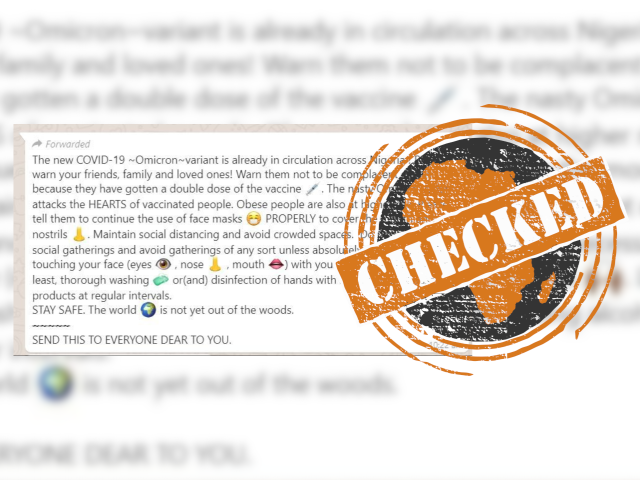IN SHORT: A fake headline circulating online claims that a presenter at Kenyan news station KTN News was isolated after an outbreak of syphilis in the newsroom. But the newspaper to which the claim was attributed disowned it as a hoax.
An unnamed senior anchor at Kenyan news channel KTN News has been quarantined after an outbreak of syphilis in the newsroom. That’s the claim in what appears to be an image of the print version of a popular political gossip column in the Star newspaper.
It goes on to claim that the station is considering sending “all of its weekend rooster staff home after some anchors showed signs of the STD” and that “senior anchors are on the spot for attending raunchy parties in each other’s homes”.
It ends: “The board is concerned about the dengenration of morals in the newsroom and has planned to take drastic actions to stop the debauchery.”
The message is accompanied by a photo of Julius Kipng’etich. He serves on the board of the Standard Group, which owns KTN News, as deputy chairperson.
Syphilis is a sexually transmitted disease (STD) caused by a bacterium called Treponema pallidum. The bacterium causes infection when it gets into broken skin or mucous membranes, usually of the genitals.
Quarantine is a public health measure used to separate and restrict the movements of people who have been exposed to a contagious disease in order to prevent its spread. However, syphilis does not require quarantine as it is not spread through casual contact. Treatment mainly involves antibiotics, and partners should be informed and treated.
Before the development of effective antibiotics, people with syphilis were sometimes quarantined. However, this is no longer considered an effective public health measure.
The image also appears on Facebook here and here, and on X (formerly Twitter) here, here, here, here here, with the claims made in March 2024.
But did the Star publish the circulating image? We checked.

‘It is fake’
A newsreader’s STD diagnosis is a private matter and would not ordinarily be reported by their employer, the TV station or other news publication.
Another indication that this headline is fake is the presence of grammatical errors, such as “dengenration” instead of “degeneration”. Such typos would be unlikely in a newspaper with the national reach of the Star.
Our search for the headline in question on the Star’s website came up empty, particularly in the “Corridors of Power” gossip section, where such stories often appear.
On 27 March 2024, the Star posted the image on its verified X account, stamped “FAKE”.
“If it is not on our official pages, it is FAKE! Get the real copy by visiting http://mgazeti.com,” it wrote.
Republish our content for free
For publishers: what to do if your post is rated false
A fact-checker has rated your Facebook or Instagram post as “false”, “altered”, “partly false” or “missing context”. This could have serious consequences. What do you do?
Click on our guide for the steps you should follow.
Publishers guideAfrica Check teams up with Facebook
Africa Check is a partner in Meta's third-party fact-checking programme to help stop the spread of false information on social media.
The content we rate as “false” will be downgraded on Facebook and Instagram. This means fewer people will see it.
You can also help identify false information on Facebook. This guide explains how.





Add new comment